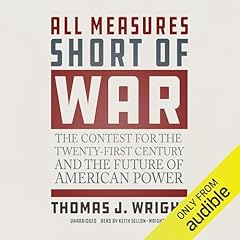
Military Realism
The Logic and Limits of Force and Innovation in the U.S. Army
No se pudo agregar al carrito
Add to Cart failed.
Error al Agregar a Lista de Deseos.
Error al eliminar de la lista de deseos.
Error al añadir a tu biblioteca
Error al seguir el podcast
Error al dejar de seguir el podcast
 Exclusivo para miembros Prime: ¿Nuevo en Audible? Obtén 2 audiolibros gratis con tu prueba.
Exclusivo para miembros Prime: ¿Nuevo en Audible? Obtén 2 audiolibros gratis con tu prueba.Compra ahora por $22.81
-
Narrado por:
-
Kevin Moriarty
-
De:
-
Peter Campbell
After the Vietnam War, the US Army considered counterinsurgency (COIN) a mistake to be avoided. Many found it surprising, then, when setbacks in recent conflicts led the same army to adopt a COIN doctrine. Scholarly debates have primarily employed existing theories of military bureaucracy or culture to explain the army’s re-embrace of COIN, but Peter Campbell advances a unique argument centering on military realism to explain the complex evolution of army doctrinal thinking from 1960 to 2008.
In five case studies of US Army doctrine, Campbell pits military realism against bureaucratic and cultural perspectives in three key areas - nuclear versus conventional warfare, preferences for offense versus defense, and COIN missions - and finds that the army has been more doctrinally flexible than those perspectives would predict. He demonstrates that decision makers, while vowing in the wake of Vietnam to avoid (COIN) missions, nonetheless found themselves adapting to the geopolitical realities of fighting “low intensity” conflicts. In essence, he demonstrates that pragmatism has won out over dogmatism. At a time when American policymakers remain similarly conflicted about future defense strategies, Campbell’s work will undoubtedly shape and guide the debate.
©2019 The Curators of the University of Missouri (P)2020 Redwood AudiobooksLos oyentes también disfrutaron:




















Reseñas de la Crítica
"Essential reading for scholars, practitioners, and citizens seeking to understand the origins and substance of Army doctrine..." (Marybeth Peterson Ulrich, US Army War College)
"This book will have widespread appeal…provides rich historical context of key events and senior leaders’ decision-making processes." (Army Magazine)
"An important contribution to the scholarship on military doctrine and its importance to international relations and security studies.” (Benjamin Jensen, American University)


